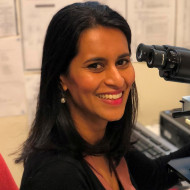Pathologist
Kaimātai Mate Tangata
Alternative titles for this job
Pathologists are doctors who diagnose and study human diseases and conditions. They diagnose health problems by testing tissue and fluid samples taken from patients.
Pay
Trainee pathologists can earn
$64K-$205K per year
Qualified pathologists can earn
$170K-$251K per year
Source: ASMS and RDA, 2022 - 2024
Job opportunities
Pay
Pay for pathologists varies depending on seniority, hours, location and frequency of on-call or emergency cover.
Pathologists who work for Te Whatu Ora Health NZ (previous DHBs)
- House officers (supervised junior doctors) who work for Te Whatu Ora can earn $64,000 to $145,000 a year.
- Registrars (trainee pathologists) can earn $80,000 to $205,000.
- Qualified pathologists can earn $170,000 to $251,000.
Pathologists working in the private sector can earn more than this.
Sources: Association of Salaried Medical Specialists, 'New Zealand District Health Boards – Senior Medical and Dental Officers Collective Agreement, 1 April 2022 - 31 March 2023'; and Resident Doctors' Association, 'RDA and 20 District Health Boards Multi Employer Collective Agreement 17 March 2021 to 31 March 2024'.
- Te Whatu Ora website - RDA and 20 District Health Boards Multi Employer Collective Agreement 17 March 2021 to 31 March 2024 (PDF - 5 MB)
- Te Whatu Ora website - Senior Medical and Dental Officers Collective Agreement 1 April 2022- 31 March 2023 (PDF - 704KB)
(This information is a guide only. Find out more about the sources of our pay information)
What you will do
Pathologists may do some or all of the following:
- analyse samples taken from patients
- diagnose diseases such as cancer and diabetes
- discover the genetic causes of disease
- provide reports and advice for medical practitioners
- research diseases to find cures and guide public health policy
- investigate deaths and perform autopsies
- teach medical students and trainees
- monitor treatment and progression of diseases.
Skills and knowledge
Pathologists need to have knowledge of:
- how the human body works
- how to diagnose different diseases and illnesses
- medicines and treatments, and the effect these have
- the chemistry of the body
- anatomy and medical surgical procedures
- current research and practices in their field.
Working conditions
Pathologists:
- may work regular business hours, or be on call if they work in hospitals
- work in hospital laboratories, private laboratories and medical schools
- work with infectious material – laboratories have strict health and safety standards to minimise risks
- travel throughout New Zealand and overseas to attend meetings, seminars and workshops.
What's the job really like?

Komal Srinivasa
Pathologist
What's the best thing about your job?
“Our college’s motto is ‘pathology is the basis of medicine’ and that’s the reason I did pathology – I truly believe that. We’re the support people in the background, but without us the medical system wouldn’t work.
“People often think you put a blood test into a black box and it comes out the other end, but that’s not how most pathology works, that ‘black box’ is me.”
What kind of person would find pathology interesting?
“The thing that’s most interesting about pathology is all the different specialties. Someone can be trained in anatomical pathology, another person can be a geneticist, and another can be a biochemist.
“Those are all different specialties within pathology, but they’re slightly different things to suit different types of people and keep things interesting for them.”
Do you have any advice for people thinking about a pathologist career?
“Go and visit a laboratory within your hospital – pathologists are always happy to see new trainees come through. We’ve had house officers who come and follow the work of a pathologist for a day. That way, they can tell if the job is something they’d like to do or not.”
Entry requirements
To become a pathologist you need to:
- complete the Health Sciences First Year programme at Otago University, or the first year of either the Bachelor of Health Sciences or Bachelor of Science in Biomedical Science at Auckland University
- complete a five-year Bachelor of Medicine and Bachelor of Surgery (MBChB) degree at Otago or Auckland Universities
- work for two years as a house officer (supervised junior doctor) in a hospital
- complete another five years of specialist training and examinations to become a Fellow of the Royal College of Pathologists of Australasia
- complete a further one or two years of specialist training and examinations to become a Joint Fellow of the Royal College of Pathologists of Australasia and the Royal Australasian College of Physicians.
- University of Otago website - Health Sciences First Year programme
- University of Otago website - Bachelor of Medicine and Bachelor of Surgery
- University of Auckland website - Bachelor of Medicine and Bachelor of Surgery
- Royal College of Pathologists of Australasia website - pathologist training
Secondary education
NCEA Level 3 is required to enter tertiary training. Useful subjects include maths, chemistry, physics, health education, biology and English.
Additional requirements for specialist roles:
To specialise in some disciplines within pathology, such as chemical pathology, you may need to complete a further one or two years of study.
You will then gain a second fellowship to the Royal Australasian College of Physicians in addition to your fellowship with the Royal College of Pathologists of Australasia.
Personal requirements
Pathologists need to be:
- accurate, with good attention to detail
- analytical, with problem-solving skills
- able to work well under pressure
- excellent at data analysis and interpretation
- good at communicating
- good at report writing.
Useful experience
Useful experience for pathologists includes:
- work in healthcare in hospitals or clinics
- work in a laboratory
- work caring for people.
Physical requirements
Pathologists need to have good eyesight (with or without corrective lenses).
Registration
Pathologists need to be registered with the Medical Council of New Zealand.
Find out more about training
- Medical Council of New Zealand
- 0800 286 801 - www.mcnz.org.nz
- Royal College of Pathologists of Australasia (RCPA)
- rcpa@rcpa.edu.au - www.rcpa.edu.au
What are the chances of getting a job?
Number of factors contribute to shortage of pathologists
Pathologists are in demand as there is a shortage of workers due to:
- New Zealand's growing and ageing population
- an ageing workforce
- more criminal cases needing forensic pathologists
- a worldwide shortage of specialist doctors.
According to the Census, 327 pathologists worked in New Zealand in 2018.
Most pathologists work for public and private hospitals
Pathologists may work for:
- public hospitals run by District Health Boards
- private hospitals
- Labtests NZ
- the medical schools at the Universities of Auckland and Otago doing teaching or research.
Sources
- Association of Salaried Medical Specialists, ‘Hospitals on the Edge’, 25 November 2019.
- Association of Salaried Medical Specialists, 'New Zealand’s National Forensic Pathology Service', 2 January 2018.
- The Forensic Group, ‘Forensic Pathology in New Zealand’, 11 March 2016.
- Medical Council of New Zealand, ‘The Workforce Survey’, May 2016.
- Pennington, Phil, ‘Crisis Time for Forensic Pathology, Doctor Warns’, 5 April 2016.
- Royal College of Pathologists of Australasia, 'New Zealand Pathologist Workforce Study 2018', September 2018.
- Stats NZ, '2018 Census Data', 2019.
(This information is a guide only. Find out more about the sources of our job opportunities information)
Progression and specialisations
Pathologists may progress to teach students and trainee pathologists at larger hospitals and universities. They may also become clinical directors, combining an administrative role with a pathology role.
Pathologists may specialise in roles such as:
- Anatomical Pathologist
- Anatomical pathologists study organs and tissues to help determine the cause and effect of diseases. They are primarily involved in diagnosing cancers.
- Chemical Pathologist
- Chemical pathologists use analytical instruments to detect chemical changes in bodily fluids, and use the results to diagnose diseases and other conditions.
- Cytopathologist
- Cytopathologists study cells from fluid samples taken by scraping a lesion on a body or with a needle.
- Forensic Pathologist
- Forensic pathologists investigate unexpected deaths, analyse criminal cases and assist the police in a range of investigations.
- Genetic Pathologist
- Genetic pathology involves testing chromosomes and DNA from cells in body fluids and tissues, and diagnosing genetic diseases.
- Haematologist
- Haematologists deal with diseases that affect the blood, such as anaemia and leukaemia and may also work in blood typing and compatibility testing, and the management and supply of a large range of blood products.
- Histopathologist
- Histopathologists study tissues from patients to check if a disease is present.
- Immunopathologist
- Immunopathologists study and test specimens from the immune system.
- Microbiologist
- Microbiologists deal with diseases caused by infectious agents, such as bacteria, viruses, fungi and parasites through testing blood, body fluids and tissue samples.
Last updated 2 February 2024


